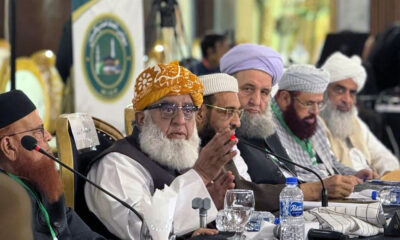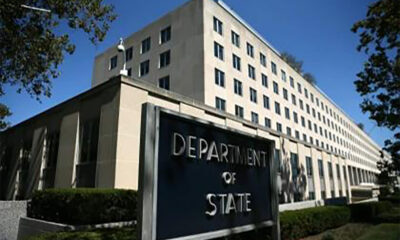World
Morocco earthquake kills more than 2,000 people, survivors sleep rough
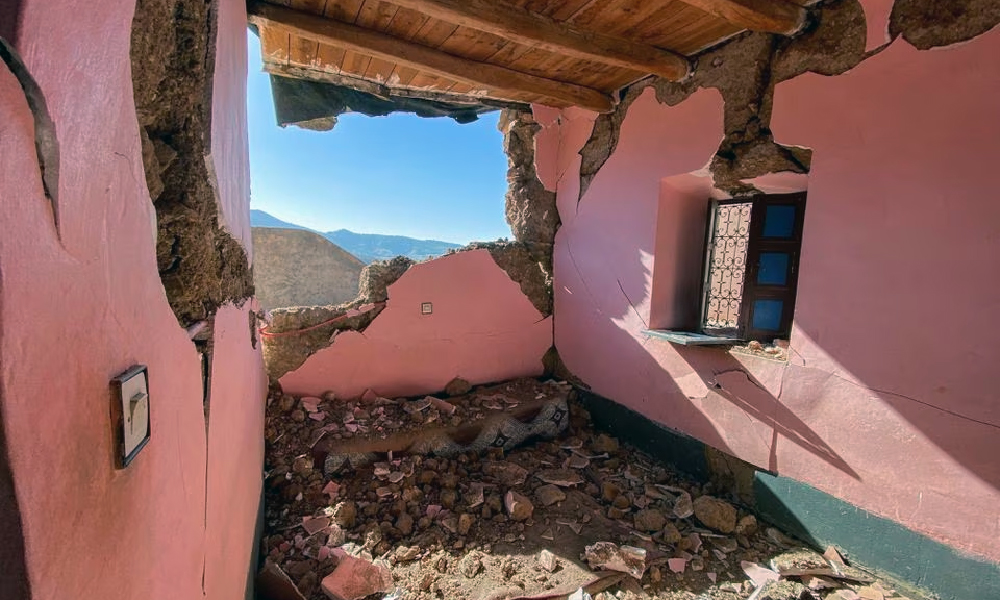
Moroccan earthquake survivors huddled for a night in the open on the High Atlas Mountains on Saturday, a day after the country’s deadliest quake in more than six decades killed more than 2,000 people and laid waste to villages, Reuters reported.
Neighbours were still searching for survivors buried on the slopes, where houses of mud brick, stone and rough wood were cracked open and mosque minarets toppled by the quake that struck late on Friday. The historic old city of Marrakech also suffered extensive damage.
The Interior Ministry said 2,012 people had been killed and 2,059 injured, including 1,404 in critical condition. The U.S. Geological Survey said the quake had a magnitude of 6.8 with an epicentre some 72 km (45 miles) southwest of Marrakech.
In the village of Amizmiz near the epicentre, rescue workers picked through rubble with their bare hands. Fallen masonry blocked narrow streets. Outside a hospital, around 10 bodies lay covered in blankets as grieving relatives stood nearby, read the report.
“When I felt the earth shaking beneath my feet and the house leaning, I rushed to get my kids out. But my neighbours couldn’t,” said Mohamed Azaw. “Unfortunately no one was found alive in that family. The father and son were found dead and they are still looking for the mother and the daughter.”
Rescuers stood atop the pancaked floors of one building in Amizmiz, bits of carpet and furniture protruding from the rubble. A long queue formed outside the only open shop as people sought supplies. Underlining the challenges facing rescuers, fallen boulders blocked a road from Amizmiz to a nearby village.
Nearly all the houses in the area of Asni, some 40 km south of Marrakech, were damaged, and villagers were preparing to spend the night outside. Food was in short supply as roofs had collapsed on kitchens, said villager Mohamed Ouhammo.
Montasir Itri, a resident of Asni, said the search was on for survivors.
“Our neighbours are under the rubble and people are working hard to rescue them using available means in the village,” he said.
The village of Tansghart in the Ansi area, on the side of a valley where the road from Marrakech rises up into the High Atlas, was the worst hit of any Reuters saw. Its once-pretty houses, clinging to a steep hillside, were cracked open by the shaking ground. Those still standing were missing chunks of wall or plaster. Two mosque minarets had fallen.
Abdellatif Ait Bella, a labourer, lay on the ground, barely able to move or speak, his head bandaged from wounds caused by falling debris.
“We have no house to take him to and have had no food since yesterday,” said his wife Saida Bodchich, fearing for the future of their family of six with their sole breadwinner so badly hurt. “We can rely on nobody but God.”
The village is already mourning ten deaths including two teenage girls, an inhabitant said.
Tremors were felt as far away as Huelva and Jaen in southern Spain. The World Health Organization said more than 300,000 people were affected in Marrakech and surrounding areas, Reuters reported.
Street camera footage in Marrakech showed the moment the earth began to shake, as men suddenly looked around and jumped up, and others ran for shelter into an alleyway and then fled as dust and debris tumbled around them.
In the heart of the old city, a UNESCO World Heritage site, a mosque minaret had fallen in Jemaa al-Fna Square. Some houses in the tightly packed old city collapsed and people used their hands to remove debris while they waited for heavy equipment, said resident Id Waaziz Hassan.
Morocco declared three days of national mourning, during which the national flag will be flown at half staff throughout the country, the royal court said on Saturday.
According to Reuters the Moroccan armed forces will deploy rescue teams to provide affected areas with clean drinking water, food supplies, tents and blankets, it added.
Turkey, where powerful earthquakes in February killed more than 50,000 people, was among nations expressing solidarity and offering to provide support.
Algeria, which broke off ties with Morocco in 2021 after escalating tensions between the countries focused on the Western Sahara conflict, said it would open airspace for humanitarian and medical flights.
The quake was recorded at a depth of 18.5 km, typically more destructive than deeper quakes of the same magnitude. It was Morocco’s deadliest earthquake since 1960 when a quake was estimated to have killed at least 12,000 people, according to the U.S. Geological Survey.
Mohammad Kashani, associate professor of structural and earthquake engineering at the University of Southampton, compared scenes of the aftermath to images from Turkey in February: “The area is full of old and historical buildings, which are mainly masonry. The collapsed reinforced concrete structures that I saw … were either old or substandard.”
Marrakech is due to host the annual meetings of the International Monetary Fund and World Bank from Oct. 9.
An IMF spokesperson, asked about the planned meetings, said: “Our sole focus at this time is on the people of Morocco and the authorities who are dealing with this tragedy.”
World
Trump administration recalls dozens of diplomats in ‘America First’ push
The State Department declined to name those affected, with a senior official calling the recalls a routine step for new administrations.
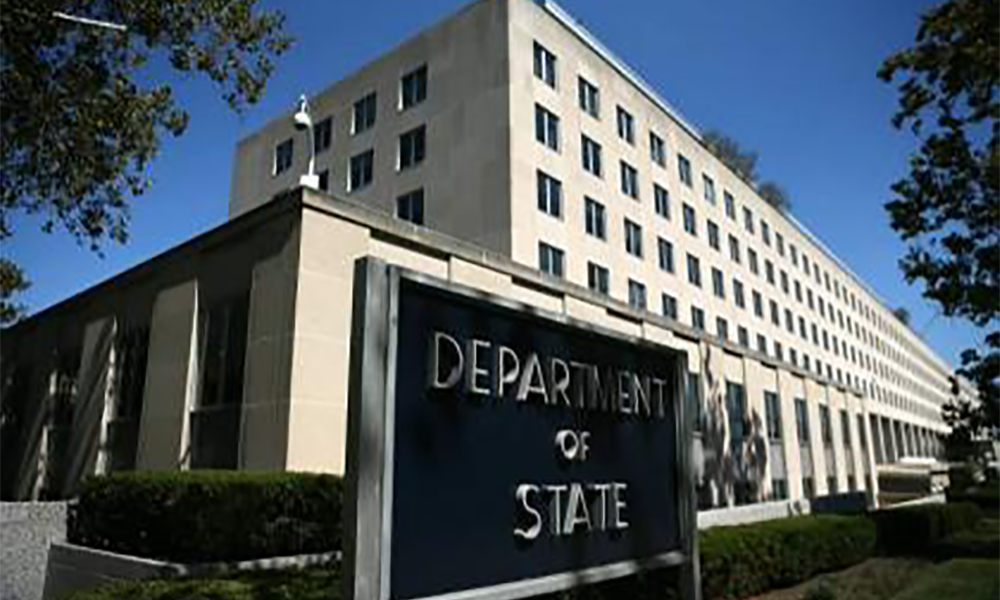
The Trump administration is recalling nearly 30 U.S. ambassadors and senior career diplomats to ensure embassies align with President Donald Trump’s “America First” agenda, a move critics say could weaken U.S. credibility abroad.
The State Department declined to name those affected, with a senior official calling the recalls a routine step for new administrations. The official said ambassadors are the president’s representatives and must advance his policy priorities.
However, officials familiar with the matter said the recalls largely affect career Foreign Service officers posted to smaller countries, where ambassadors are traditionally non-partisan. Those ordered back to Washington were encouraged to seek other roles within the State Department.
The American Foreign Service Association said some diplomats were notified by phone without explanation, calling the process “highly irregular” and warning that such actions risk harming morale and U.S. effectiveness overseas. The State Department did not respond to the criticism.
The move, first reported by Politico, comes as Trump seeks to place loyalists in senior roles during his second term, after facing resistance from the foreign policy establishment in his first.
Democrats have criticised the decision, noting that around 80 ambassadorial posts remain vacant. Senator Jeanne Shaheen said the recalls undermine U.S. leadership and benefit rivals such as China and Russia.
World
Trump plans expanded immigration crackdown in 2026 despite backlash
The plans come amid rising public unease over aggressive tactics, including neighborhood raids and the detention of some U.S. citizens.

U.S. President Donald Trump is preparing to significantly expand his immigration crackdown in 2026, backed by billions of dollars in new funding, even as political opposition grows ahead of next year’s midterm elections.
ICE and U.S. Customs and Border Protection are set to receive an additional $170 billion through September 2029, enabling the administration to hire thousands of new agents, expand detention facilities and increase enforcement actions, including more workplace raids. While immigration agents have already been surged into major U.S. cities, many economically critical workplaces were largely spared in 2025.
The plans come amid rising public unease over aggressive tactics, including neighborhood raids and the detention of some U.S. citizens. Trump’s approval rating on immigration has fallen from 50% in March to 41% in mid-December, according to recent polling.
The administration has also revoked temporary legal status for hundreds of thousands of Haitian, Venezuelan and Afghan migrants, expanding the pool of people eligible for deportation.
About 622,000 immigrants have been deported since Trump took office in January, short of his goal of 1 million deportations per year.
White House border czar Tom Homan said arrests will increase sharply next year as staffing and detention capacity grow. Critics warn that expanded workplace enforcement could raise labor costs and deepen political and economic backlash ahead of the elections.
World
US, Russian officials meet in Florida for more Ukraine talks
Kyiv says it will not cede land that Moscow’s forces have failed to capture in nearly four years of war.
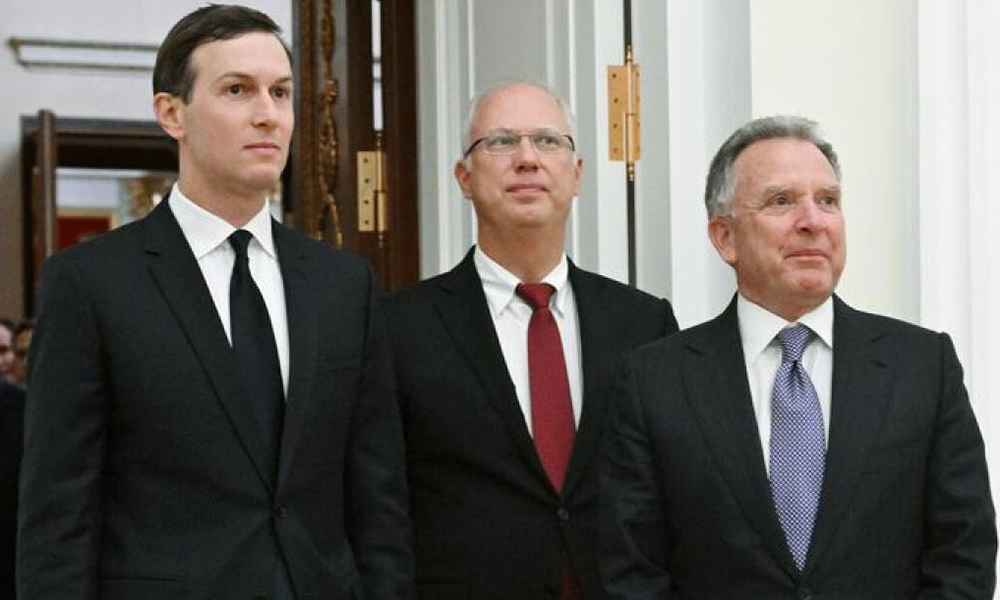
U.S. negotiators met Russian officials in Florida on Saturday for the latest talks aimed at ending Russia’s war in Ukraine, as President Donald Trump’s administration tries to coax an agreement out of both sides to end the conflict, Reuters reported.
The Miami meeting followed U.S. talks on Friday with Ukrainian and European officials, the latest discussions of a peace plan that has sparked some hope of a resolution to the conflict that began when Russia launched its full-scale invasion in February 2022.
Russian President Vladimir Putin’s special envoy Kirill Dmitriev told reporters after meeting U.S. special envoy Steve Witkoff and Trump’s son-in-law Jared Kushner that the talks were constructive and would continue on Sunday. A White House official said the talks had concluded for the day.
“The discussions are proceeding constructively. They began earlier and will continue today, and will also continue tomorrow,” Dmitriev said.
Marco Rubio, Trump’s top diplomat and national security advisor, had said he might also join the talks.
U.S., Ukrainian and European officials earlier this week reported progress on security guarantees for Kyiv as part of the talks to end the war, but it remains unclear if those terms will be acceptable to Moscow.
A Russian source told Reuters that any meeting between Dmitriev and the Ukrainian negotiators had been ruled out.
In Kyiv, Ukrainian President Volodymyr Zelenskiy said on Saturday that Ukraine would back a U.S. proposal for three-sided talks with the United States and Russia if it facilitated more exchanges of prisoners and paved the way for meetings of national leaders.
“America is now proposing a trilateral meeting with national security advisers — America Ukraine, Russia,” Zelenskiy told local journalists in Kyiv.
U.S. intelligence reports continue to warn that Putin intends to capture all of Ukraine, sources familiar with the intelligence said, contradicting some U.S. officials’ assertions that Moscow is ready for peace.
Putin offered no compromise during his annual press conference in Moscow, insisting that Russia’s terms for ending the war had not changed since June 2024, when he demanded Ukraine abandon its ambition to join NATO and withdraw entirely from four Ukrainian regions Russia claims as its own territory, Reuters reported.
Kyiv says it will not cede land that Moscow’s forces have failed to capture in nearly four years of war.
Ukraine’s top negotiator Rustem Umerov said U.S. and European teams on Friday held talks and agreed to pursue their joint efforts.
“We agreed with our American partners on further steps and on continuing our joint work in the near future,” Umerov wrote on Telegram of the discussions in the United States, adding that he had informed Zelenskiy of the outcome of the talks.
The White House did not immediately respond to a request for comment.
Rubio told reporters on Friday that progress has been made in discussions to end the war but there is still a way to go.
“The role we’re trying to play is a role of figuring out whether there’s any overlap here that they can agree to, and that’s what we’ve invested a lot of time and energy and continue to do so. That may not be possible. I hope it is. I hope it can get done this month before the end of the year.”
-

 Latest News2 days ago
Latest News2 days agoAfghanistan signs 30-year deal for marble mining in Daikundi
-

 Latest News4 days ago
Latest News4 days agoAfghan border forces prevent illegal entry of hundreds into Iran
-

 Latest News3 days ago
Latest News3 days agoPakistan summons Afghan diplomat over deadly attack in North Waziristan
-

 Latest News3 days ago
Latest News3 days agoAfghan health minister calls for medical cooperation between Kabul and New Delhi
-

 Latest News4 days ago
Latest News4 days agoJapan allocates nearly $20 million in humanitarian aid for Afghanistan
-

 Latest News3 days ago
Latest News3 days agoKarzai urges reopening of girls’ schools and universities for Afghanistan’s bright future
-
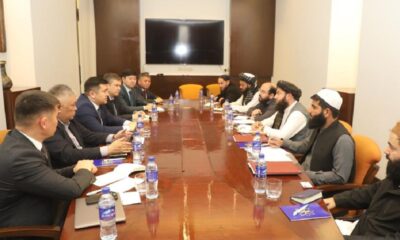
 Business5 days ago
Business5 days agoAfghanistan-Kazakhstan banking ties discussed in Kabul meeting
-
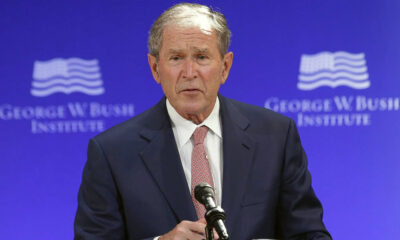
 Latest News2 days ago
Latest News2 days agoBush Institute criticizes Trump administration’s Afghan immigration freeze


